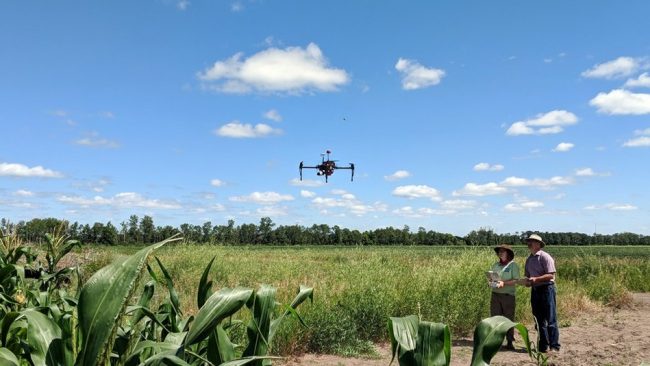
News
Business & Policy
Future planning
Government invests in academia/industry collaborative projects
July 7, 2021 By Top Crop Manager
 Photo courtesy of CNW Group/Western Economic Diversification Canada.
Photo courtesy of CNW Group/Western Economic Diversification Canada. On July 5, Terry Duguid, parliamentary secretary to Mélanie Joly, minister of economic development and official languages, and minister responsible for Western Economic Diversification Canada, announced more than $3.7 million in non-repayable funding for two projects at the University of Manitoba through the Regional Innovation Ecosystems program.
The two projects will support collaboration between academic and industry and strengthen innovation ecosystems in Western Canada.
- Digital Agriculture is receiving $2,499,565 to advance agricultural research and training capacity for students in collaboration with industry partners. This will be supported through the development and adoption of Digital Smart Farm technology, while maximizing knowledge transfer from academia to industry. This project also has funding from partners with interests in crop and soil management, sustainability and precision agriculture in Western Canada. The total project cost is $5,005,971. This project is under the leadership of Martin Scanlon, dean of the faculty of agricultural and food sciences.
- Lab2Market is receiving $1,233,500 to develop and deliver the Lab2Market initiative in Manitoba to enhance research commercialization performance. This will increase technology transfer activities and expedite training of graduates, post-doctoral students, and researchers to help them commercialize their innovations efficiently. This project also has funding from MITACS, North Forge Technology Exchange, Ryerson University, Dalhousie University, Memorial University and the University of Manitoba. The total project cost is $2,504,600. This project is under the leadership of Darren Fast, director of partnerships & innovation.
“The transfer of knowledge between academia and industry play a crucial role in the growth of regional ecosystems,” Duguid said in a press release. “Supporting the next generation of highly trained professionals helps Western Canada grow and compete.”
These investments are expected to result in increased industry/academic partnerships, research and development expenditures, Highly Qualified Personnel (HQP) trained, and small- and medium-sized enterprises (SMEs) assisted.